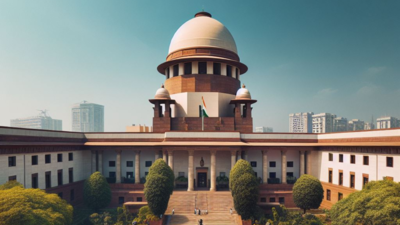Supreme Court Collegium and the Debate on Judicial Appointments
Current Affairs NationalPosted by newadmin on 2025-03-25 08:56:16 |
Share: Facebook | Twitter | Whatsapp | Linkedin Visits: 63

The Supreme Court collegium plays a crucial role in the appointment and transfer of judges in India’s higher judiciary. Recently, it made headlines for transferring Justice Yashwant Varma from the Delhi High Court to the Allahabad High Court after a fire incident at his residence led to the recovery of a large amount of cash. This event reignited debates on the transparency and accountability of the collegium system.
The collegium system is responsible for appointing judges to the Supreme Court and High Courts. It evolved through judicial rulings rather than constitutional provisions. The Supreme Court collegium consists of the Chief Justice of India (CJI) and the four seniormost judges, while High Court collegiums comprise the Chief Justice and two senior judges. Recommendations made by High Court collegiums must be approved by the Supreme Court collegium. The government’s role is limited to background checks, but it must accept the collegium’s final decision.
Despite its importance, the system faces criticism for its opaque nature. There is no formal selection process, and eligibility criteria remain undisclosed. Many argue that this leads to favoritism and a lack of accountability.
To address these concerns, proposals such as the National Judicial Appointments Commission (NJAC) were introduced. The NJAC, passed in 2014, sought to include government representation, but it was struck down by the Supreme Court in 2015 for undermining judicial independence.
The debate over judicial appointments continues, highlighting the need for a balance between judicial independence and transparency in India’s legal system.
Search
Categories
Recent News
- Uncovering the Golden Scheme: I-T Raids Expose Bullion Trading Secrets
- Big Tech's Child Safety Crisis: Australia Sounds the Alarm
- Blue Cloud Softech's $150M Edge AI Chip Venture
- Nuclear Diplomacy Revived: US and Iran Resume Talks
- Curiosity Illuminates Mars: Unveiling the Red Planet's Night Secrets
- Telangana's Cybercrime Conclave: AI Takes Centre Stage
- SEIL's Rs 20 Crore Hospital Project: A Milestone for Rural Healthcare
- India's Strategic Patience: Navigating US Trade Tensions
Popular News
- Navigating IPO Market Dynamics Amid Volatility and Regulatory Changes
- Massive Worldwide Microsoft Outage Disrupts Multiple Sectors
- Panjapur Bus Stand to Reshape TNSTC Routes
- తెలుగుదేశం పార్టీ - పేదరికాన్ని నిర్మూలించడంలో వాగ్దానం
- Universities Embrace Remote Learning Technologies Amidst Ongoing Pandemic